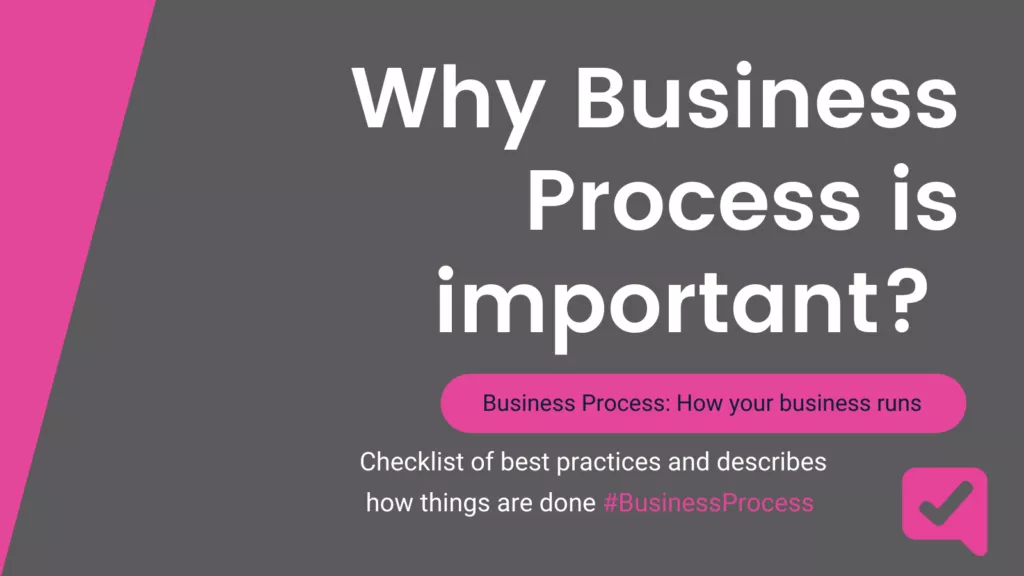
Business processes are integral to the growth and success of any company. They set the blueprint or checklist for various activities, allowing employees to carry out small repeatable tasks towards a specific objective. Knowing what business processes are and developing them effectively are different things.
A company can have its processes constantly changing due to regulatory compliance and market demands. Employees may not have sufficient information about how processes function. Another issue is having too many processes that don’t seem to be yielding any results. Business process management (BPM or BPMS) comes in handy when looking to solve such situations.
BPM involves frequent re-evaluation and improvement of processes. With the intense competition that most enterprises face, it becomes necessary to find ways to optimise various activities. However, you may not think business process management benefits your business. So, here are some of the benefits you might get from using a BPMS and what value to expect.

Business Process Management Benefits
There are so many business management benefits but here are a few:
Increased Efficiency
Inefficiencies in an organisation lead to wastage. If your company is to fulfil its various goals, it needs business processes to run smoothly. BPM enables you to come up with better designs and streamline systems that boost efficiency. Through business process management, you can remove redundancies, thus, saving effort, time and money. You can develop processes that allow your business to operate in optimal conditions.
Improved Productivity
Improve processes productivity so process innovation is important for businesses to grow.
Streamline business processes and automate processes that have no need for human intervention. Automation speeds up the process and task completion.
Better Business Agility
Change is constant in any business environment. The success of a company depends on its ability to adapt to change over time. Market shifts can be in different forms.
For example, streaming services affecting pay-TV or new regulations requiring European businesses to reevaluate compliance. BPM makes an organisation flexible so that it can adjust its processes to satisfy new requirements.
Ensuring Compliance
Companies must comply with industry regulations to maintain any sense of credibility. Compliance helps enterprises create services and products that meet the required standards.
However, when handling various processes, tracking compliance in all of them can be difficult. BPM lets you build compliance into a process life cycle. It also makes it easy to ensure transparency for the management and regulatory bodies.
Easier Transfer of Business Knowledge
If an organisation is to keep growing, it requires skills, knowledge and tacit knowledge to be transferred among employees. Traditionally, companies have relied on workers to teach what they know to the colleagues who need it. However, businesses lose employees, which means that the knowledge goes with them.
BPM facilitates knowledge management, process mapping where knowledge about certain activities stays in-house. So, the next batch of workers can learn the relevant information without disrupting operations.
This also is a great way to plan for the bus factor or continuity planning in case of a major incident that may affect your business.
Employee Satisfaction
Workers who have to do repetitive tasks can get tired or bored easily. Productivity might also decrease, especially in employees with high expertise or skills. BPM gets rid of menial work, allowing the staff to concentrate on critical functions. Workers who get to do what they love tend to be more satisfied. The more satisfied employees are, the higher the retention rate.
Reduced Expenditure and Costs
Better efficiency increased productivity and compliance transparency lowered expenses. Streamlining business processes decreases inputs. At the same time, a company can increase its outputs because employees work more efficiently. Alternatively, you can maintain the same output level, while spending less on inputs without compromising quality.
Process Consistency and Transferability
BPM makes it less complicated to establish the most effective way to approach a particular task. Every employee responsible for the process has a blueprint or checklist to follow.
For that reason, it is easy to replicate the same outcomes. Identical issues get similar solutions thanks to process standardisation. Enterprises don’t need to spend time coming up with new solutions. Besides that, a company increases accountability among workers.
Bottlenecks are points in processes that can slow, delay or stop processes working. Process management can help you identify these bottlenecks remove the pain points and improve processes.
Business processes help stop mistakes as they offer detailed accounts of how something works. This is made up of vast knowledge from employees over time and evolves into best practices or standard operating procedures (SOP).
Checklists help reduce mistakes as they document the process and allow people to follow each task or step in a process the correct way. No need for ad hoc decisions or having to find the answer it is documented in front of them as a guide.
Collaboration
Siloed working conditions where most employees work independently from each other and are not aware or understand what other people’s roles are within a process or business.
Documenting processes enables them to become visible to everyone and identify how everyone fits into a process.
Time Management and Workflow
Excellent time management needs planning, scheduling, monitoring, and process control.
What is workflow management? Workflow divides your time between specific tasks that need your attention right away so you use your time wisely.
Business Process Management Benefits both aiding time management by organising workflow.
Continuous Improvement
Continuous Improvement is about small improvements over a longer period of time gradually improving results.
So many benefits of using business process management
As you can see there are loads of Business Process Management Benefits that can be beneficial to most businesses. How would Business Process Management benefit your business?
Checkify Business Process Management Software
Companies can reap various business process management benefits, enabling them to streamline operations. With the right BPM software, a business can understand its business processes, and create better Business process design, leading to cost savings, improved productivity, and revenues.
Checkify enables you to create a ‘one-stop-shop’ for business tasks, processes, and procedures. Creating checklists for everyone to be able to use whenever needed.
Using Checkify helps you to understand your business processes, and create new processes and procedures with guides for everyone to follow.
Checkify checklists make sure everyone carries out processes, in the same way, every time reducing mistakes.